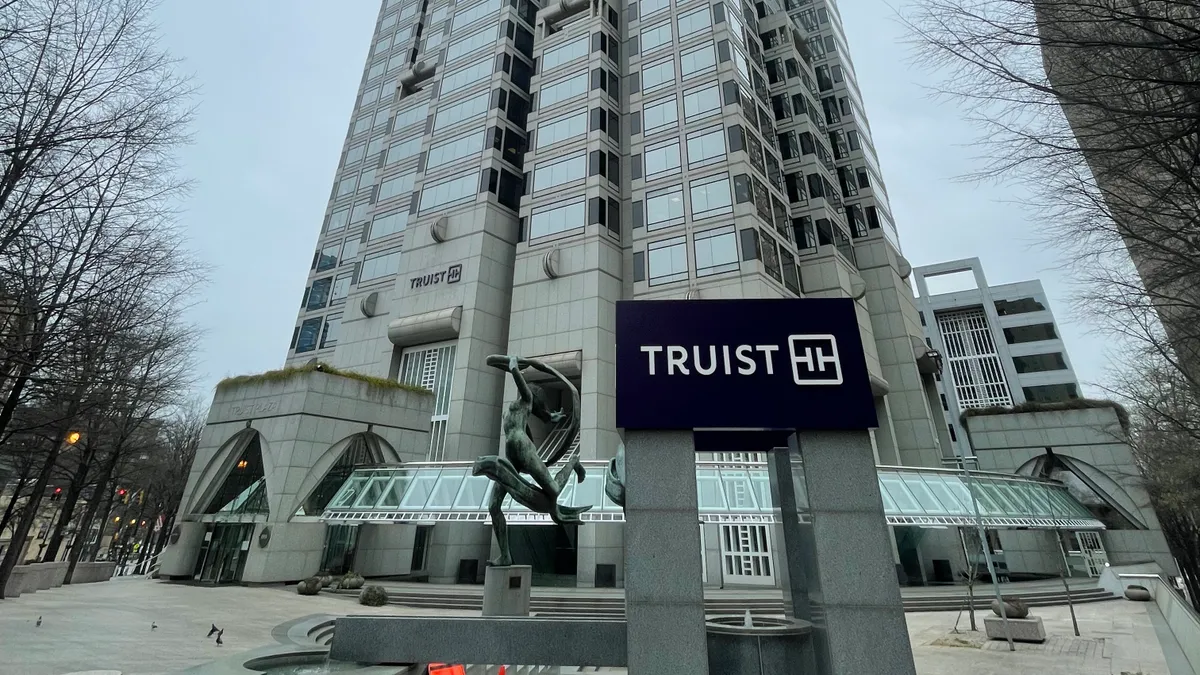Truist has pledged $725 million through a three-year initiative to support small businesses, housing and infrastructure in western North Carolina communities recovering from Hurricane Helene.
The Truist Cares for Western North Carolina program, announced Wednesday, will include $650 million in new capital to support rebuilding: $340 million will go toward lending for qualified small businesses, residential mortgages and commercial real estate, and $310 million will be allocated for low-cost, tax-exempt municipal lending for infrastructure projects.
Additionally, $50 million will be earmarked for loans or investments in community development financial institutions by Truist Community Capital, and $25 million for grants for local and national nonprofit organizations from Truist Foundation.
“Western North Carolina, a community Truist has proudly served for decades, has begun the journey to recovery, and today, we are sharing the depth of Truist's long-term commitment to supporting those efforts,” Truist CEO Bill Rogers said in a statement. “By listening to the needs of the community and leveraging our expertise, capital and partnerships, we believe we can make a meaningful difference.”
Helene tore across western North Carolina in late September with torrential rain, flooding and widespread power outages, killing at least 103 people and causing billions of dollars in damage to homes, property, roads, bridges and water systems.
Truist Foundation announced two $500,000 grants as Helene devastated parts of the country, and another $1 million grant as Hurricane Milton threatened Florida in early October.
“This is really the next phase,” Jenna Kelly, Truist’s regional president for the western half of North Carolina, told American Banker. “How do we go from a relief focus to … recovery and rebuilding?”
Charlotte, North Carolina-based Truist said the Helene relief funds are expected to be available in early December.
Truist is still finalizing the loan details, Kelly said, adding that the bank intends to be flexible with loan terms and rates to ensure capital flows effectively. The company's approach is akin to a community benefits agreement.
Following Helene, many banks in the region and across the country made relief-focused donations aimed at helping communities recover, including Raleigh, North Carolina-based First Citizens, and fellow Charlotte lender Bank of America. Memphis, Tennessee-based First Horizon committed funds to help communities affected by Helene Milton, which hit in early October.
Apart from financial institutions, bank trade groups also jumped in to extend support to Helene-impacted communities.
Within five days of Helene hitting the area, Truist accounted for all of its nearly 13,000 workers in the hurricane’s path and started aiding employees who requested assistance for temporary housing or transportation support, Aaron Slate, Truist’s Asheville market president, told Banking Dive last month.
Truist offered mobile banking services, brought in truckloads of essential supplies and opened mobile shower and laundry units in Asheville when the area was without water.
Truist has challenged its employees to volunteer for 10,000 hours, the bank said in Wednesday’s press release.














